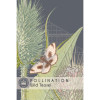The Kew Pollinators range of seeds from Thompson and Morgan has been specially created alongside the experts at Royal Botanic Gardens, Kew to attract and support a wide range of pollinators, including bees, butterflies and beetles, as well as a number of other important pollinating insects. Helping these pollinators to thrive is hugely important for our eco-system as a whole and these seeds, in their striking packaging inspired by artwork from the Kew archives, will help to create the environment which they need to thrive, with varieties chosen to help a wide range of pollinating insects, including some night flowering plants to help moths which also play an important part in our gardens.
This statuesque biennial is best known and loved by the name Teasel! A native wildflower, Dipsacus fullonum is commonly found among grasssy countryside verges and bordering the margins of fields. The tall, spiky stems are topped with cones of purple-pink flowers that attract bees and other insects. As the blooms fade the seedheads provide useful food for birds - but also make wonderful autumnal stems for adding to dried flower arrangements. A lovely addition to the back of perennial borders, cut flower gardens and wildlife areas. For the best effect, allow it to self-seed, to create naturalistic drifts. Height: 1.5m (5'). Spread: 45cm (18").
- 1 packet:
- 100 Teasel Seeds
- Sowing Months:
- Feb to Jun
- Flowering Months:
- Jul to Aug
- Ideal:
- Cottage Gardens, Wildlife Gardens, Low Maintenance Garden
- Hardiness:
- Hardy Biennial
- Position in:
- Sun Or Semi Shade











